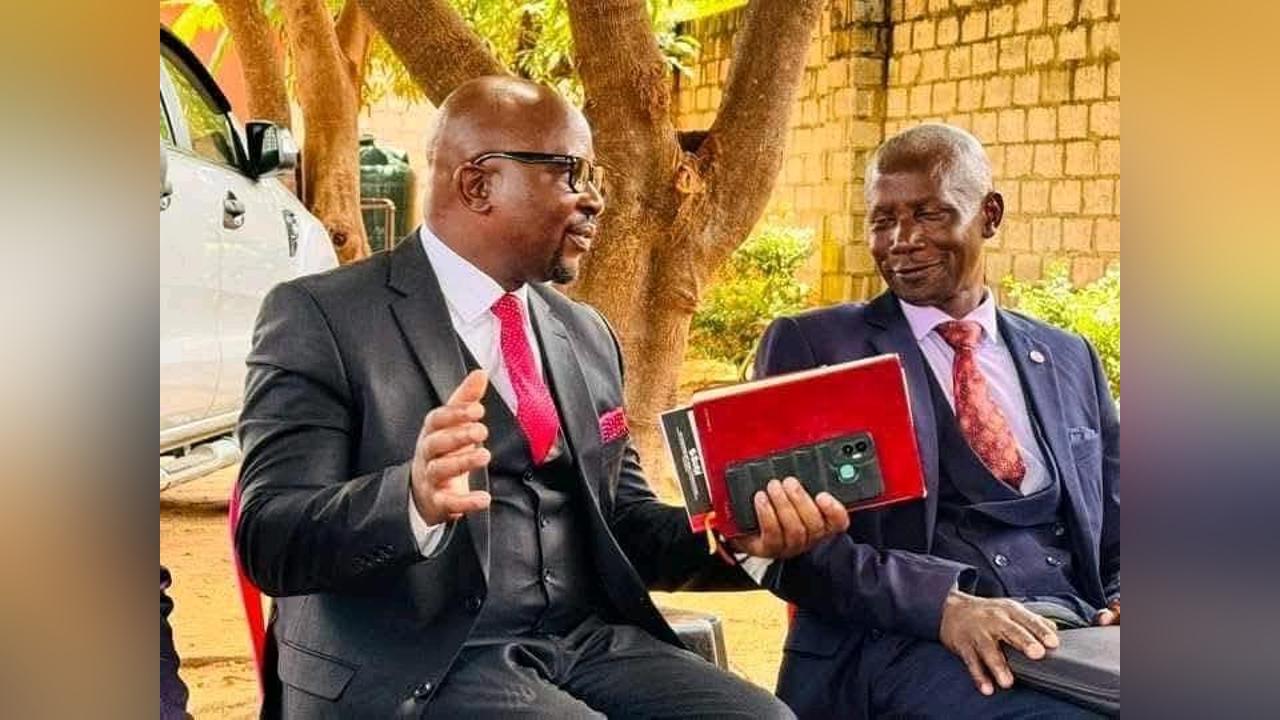Africa-Press – Zambia. I am writing this as an individual and a pastor within the Seventh-day Adventist Church, not as an official spokesperson for any church entity in Zambia.
In the past month, we have witnessed Mr. Emmanuel Mwamba repeatedly involving the Seventh-day Adventist Church in his political attacks on his Facebook page. Mr. Mwamba, a prominent figure in the Patriotic Front, has used headlines such as: “Fearless SDA Preacher,” “They are destroying the SDA Church,” “Pastors demanding SDA leadership stays away from Partisan politics,” “Love your neighbor less”, “so why do you wish to spend CDF funds on one organization,” and “Stop Politicization of the Church.”
This unprecedented dragging of the church into political discourse is deeply concerning. Mr. Mwamba, seemingly a tool of political propaganda, does not appear to research the facts behind statements made by individuals who claim to criticize church leadership on perceived political issues.
Why the Church is Being Politicized?
The current situation is unique because, for the first time, Zambia has a Republican president who is a member of the Seventh-day Adventist Church. The Seventh-day Adventist Church maintains an apolitical stance, which is a core policy position. However, this does not preclude church members from aspiring to political leadership.
Since Zambia’s independence in 1964, many Adventist members have served as Members of Parliament, ward councilors, and ministers. The church has consistently offered moral and spiritual support to its members in political leadership, viewing this as both a moral and spiritual obligation. In the past, there was even a Seventh-day Adventist Association for Members of Parliament in Zambia, where church leaders would meet and pray with them.
The church’s policy during campaigns is to avoid direct political involvement or instructing members on whom to vote for. However, after elections, the church always supports its members in leadership positions, believing that their adherence to church teachings will enable them to make a positive difference in society. This support extends beyond politicians; the church celebrates and supports members who achieve success in various fields, including social, political, and scientific endeavors.
For instance, the church in Kenya was proud to have a Chief Justice who was a Seventh-day Adventist, and similarly, the church in another region takes pride in and offers moral and spiritual support to a Seventh-day Adventist Prime Minister. The Seventh-day Adventist Church’s policy is to remain uninvolved in national politics, and its leaders have consistently upheld this principle.
Now, with a Seventh-day Adventist as president, the church is proud and offers him both spiritual and moral support. If the Republican President and his government err, the church’s approach has always been to address concerns privately, never publicly castigating any president or public official.
This tradition dates back to President Kenneth Kaunda’s era and continued through the presidencies of Chiluba, Mwanawasa, Banda, Sata, and Lungu. Even during past instances of human rights abuses, Seventh-day Adventist leaders have always engaged with the government privately.
Seventh-day Adventist pastors adhere to a strict policy of not using the pulpit as a political forum. Political matters are never addressed during worship services. The incident in the Copperbelt was regrettable. When politicians or the president attend a worship service, the Seventh-day Adventist Church does not use the occasion to discuss political issues or current national affairs. Our policy is to minister to politicians in the same way we minister to any church member.
When President Lungu was in office, the church visited and prayed with him, and even our General Conference president joined Zambian church leaders in prayer with him. President Lungu also graced several church events, including the celebration of the church’s one-millionth membership milestone. Despite any national issues at the time, our church leaders and pastors never used these occasions to discuss political matters.
I recall President Rupiah Banda as a guest of honor at a Muluse Dorcas Rally in Lusaka years ago, where he was warmly received by Dorcas mothers. Similarly, when President Hichilema, himself a Seventh-day Adventist, opened a Dorcas Rally, he was welcomed by Dorcas workers holding placards with messages like “Mr. President, we are praying for you” and “Welcome Mr. President.” These were not political statements but expressions of appreciation for his contributions, including a donation of K1.9 million, 200 bags of mealie meal, and boreholes. These decisions were made by Dorcas workers’ committees at various church levels in Southern Zambia Union Conference, without input from church leaders or pastors, and the event was widely understood as spiritual, not political.
When the president encouraged Dorcas workers to access Constituency Development Funds (CDF), he was speaking to them as members of the community, encouraging community clubs across Zambia to utilize available resources, not favoring Seventh-day Adventist women specifically.
The Underlying Motive
The current political targeting of the church, in my immediate assumption, stems from the perceived numbers of Seventh-day Adventists, which President Hakainde Hichilema’s political adversaries fear could give him an advantage. The deliberate dragging of the church into political discussions is likely an attempt to divide the church, as politicians are aware of the Seventh-day Adventist Church’s apolitical stance.
Members of the Seventh-day Adventist Church must distinguish between the church supporting a political candidate and its moral and spiritual support for a political leader, which it offers to President Hichilema. Our church leaders will never instruct members on whom to vote for. However, after elections, the church has a moral and spiritual obligation to support political leaders, believing that through our teachings, they will act righteously for the benefit of the community and the nation.
I sincerely wish Mr. Emmanuel Mwamba would cease these attempts to drag the church into political mudslinging, which appears designed to disrupt the perceived political support President Hakainde Hichilema is receiving from the church.
Please note that these are my personal thoughts and do not represent the official position of the Seventh-day Adventist Church.
For More News And Analysis About Zambia Follow Africa-Press







